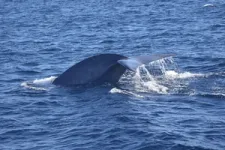(Press-News.org) Social media platforms such as Facebook and Twitter have repeatedly been the subject of negative news coverage. As a result, the positive aspects associated with digital platforms have been overlooked. In light of this, a recent study has explored the social media activity of a carefully selected group of individuals who use the microblogging platform Twitter. The authors, Dr. Roman Lietz from Johannes Gutenberg University Mainz (JGU) and Dr. Fergal Lenehan from the Friedrich Schiller University of Jena, observe that socially engaged Twitter users share unexpected similarities despite their different backgrounds. "These digital cosmopolitans share similar values and are guided by similar motivations and perspectives on society," explained Dr. Roman Lietz from the Faculty of Translation Studies, Linguistics, and Cultural Studies at JGU.
"Digital cosmopolitanism" only sparsely researched so far
There is hardly a message on social media that does not express some form of criticism. The way in which Donald Trump instrumentalized Twitter in a new manner and the radicalization and networking of far-right terrorists via social media has meant that a special focus on the right-wing populist, agitator potential of platforms such as Facebook, Twitter, Telegram and other platforms has dominated research. Scholars rarely view the other side: Social media as a space for the spread of values such as solidarity and understanding.
In their study "Tweeting the World a Better Place" funded by the German Federal Ministry of Education and Research (BMBF), Dr. Roman Lietz and Dr. Fergal Lenehan investigate this digital cosmopolitanism. They examine the motives, biographies, and traits that lead ten different people across Europe to take positions on Twitter in support of human rights and tolerance, against authoritarianism. The qualitative study focuses on regular people rather than popular accounts of influencers.
Parallels between traditional volunteering and social Twitter engagement
The study finds that the Twitter users interviewed – regardless of age, place of residence, and specific interests such as climate protection, the combating of anti-Semitism, or the advocation for LGBT rights – possess surprising similarities in terms of values, motivations, and perspectives on society and on social developments. Furthermore, parallels between traditional volunteering and cosmopolitan Twitter are clearly visible. "We perceive this as a form of digital civic engagement," explained Lietz, describing the results. The study concludes by addressing how this form of commitment and dedication to "the world as a whole" can be accomplished in the sometimes harsh environment of social media.
The study was published in the academic journal Persona Studies as part of the Researching Digital Interculturality Co-operatively (ReDICo) research project.
Related links:
https://redico.eu/ – Researching Digital Interculturality Co-operatively (ReDICo)
END
Social media provide space for digital cosmopolitanism
What kind of people use social media to advocate for tolerance, human rights, and against authoritarianism?
2023-02-28
ELSE PRESS RELEASES FROM THIS DATE:
Blue whale foraging and reproduction are related to environmental conditions, study shows
2023-02-28
NEWPORT, Ore. – A new study of New Zealand blue whales’ vocalizations indicates the whales are present year-round in the South Taranaki Bight and their behavior is influenced by environmental conditions in the region.
The findings are a significant advancement in researchers’ understanding of the habitat use and behavior of this population of blue whales, which Oregon State University researchers first identified as genetically distinct from other blue whale populations less than a decade ago.
“We ...
Social deficits and seizures in autism type tied to overexcited brain circuits
2023-02-28
· When scientists reduce level of a gene, brain activity and behavior return to normal in mice
· Approach could be used more broadly in other neurodevelopmental disorders
· Neurodevelopmental disorders affect 10 million people in U.S.
CHICAGO --- Northwestern Medicine scientists have identified the cause of a genetic subtype of autism and schizophrenia that results in social deficits and seizures in mice and humans.
Scientists have discovered a key feature of this ...
Adult smokers with mental illness consume the most caffeine in the U.S.
2023-02-28
Americans are drinking more caffeinated beverages than ever before, but Rutgers researchers found one group that tops the charts in caffeine consumption: adult smokers with mental illness.
In a study published online ahead of print in the January issue of the journal Psychiatry Research, Jill M. Williams, director of the division of addiction psychiatry at Rutgers Robert Wood Johnson Medical School, found not only do adult smokers with bipolar disorder and schizophrenia drink the most caffeine, they are at the highest risk of negative health ...
Alternative bladder cancer treatment emerges amid worldwide shortage of standard of care BCG
2023-02-28
An on-going, worldwide shortage of bacillus Calmette-Guérin (BCG) means that many patients with a common and serious type of bladder cancer have limited access to this effective standard of care treatment. But, for the first time in almost 50 years, there appears to be a viable treatment alternative.
A new study from the University of Iowa finds that a safe, inexpensive combo-chemotherapy is better tolerated than BCG and is better at preventing high-grade cancer recurrence in patients with non-muscle invasive ...
Researchers’ model for TV ad scheduling reaps revenue increase for networks
2023-02-28
Whether it’s Flo from Progressive or the Geico gecko, the average TV viewer may not give much thought to commercials outside of whether they’re entertaining or not. However, there is a rather complex science behind what commercials you see and when you see them.
Rensselaer Polytechnic Institute’s Sebastian Souyris, an assistant professor of supply chain and analytics who holds the Dean R. Wellington ’83 Teaching Professorship in Management at the Lally School of Management, along with his ...
Steel was already used in Europe 2900 years ago
2023-02-28
A study by an international and interdisciplinary team headed by Freiburg archaeologist Dr. Ralph Araque Gonzalez from the Faculty of Humanities has proven that steel tools were already in use in Europe around 2900 years ago. Using geochemicalanalyses, the researchers were able to prove that stone stelae on the Iberian peninsula that date back to the Final Bronze Age feature complex engravings that could only have been done using tempered steel. This was backed up by metallographic analyses of an iron chisel from the same period and region (Rocha do Vigio, Portugal, ca. 900 BCE) that showed the necessary carbon content to be proper steel. The result was also confirmed ...
Better metric for prioritizing conservation of “evolutionarily distinctive” species
2023-02-28
An updated metric for prioritizing species’ conservation that incorporates scientific uncertainty and complementarity between species, in addition to extinction risk and evolutionary distinctiveness, is publishing February 28th in the open access journal PLOS Biology, authored by Rikki Gumbs from the Zoological Society of London (ZSL), UK, and colleagues.
In 2007, ZSL established the Evolutionarily Distinct and Globally Endangered (EDGE) metric to prioritise species for conservation based on preserving evolutionary history embodied within endangered species. The approach ...
Parental investment may have aided evolution of larger brains
2023-02-28
A review of evidence from prior research provides new support for the possibility that the evolution of larger brains in some species was enabled through increased energy investment by parents in their offspring. Carel van Schaik of the Max Planck Institute for Animal Behavior in Konstanz, Germany, and colleagues present their arguments in a paper publishing February 28th in the open access journal PLOS Biology.
Between different species, larger relative brain size is associated with cognitive benefits that favor survival. However, larger brains ...
Profiling abortions in low- and middle-income countries
2023-02-28
Multiple factors including a women’s age, marriage status, education and how many living children she has, are associated with pregnancy termination in low- and middle-income countries, according to a new study published this week in the open-access journal PLOS Global Public Health by Djibril Ba of Penn State College of Medicine, US, and colleagues.
In low- and middle-income countries (LMICs), a woman’s decision to terminate a pregnancy is often impacted by a patriarchal structure of society, restrictive abortion laws, cultural and religious beliefs and economic factors. About 45% ...
Hollings researchers develop small molecule to stimulate natural killer cells against neuroblastoma
2023-02-28
An MUSC Hollings Cancer Center research team has created what team members believe to be among the first small molecules designed to stimulate immune cells to fight cancer. More importantly, these compounds inhibit a specific enzyme that hasn’t been targeted with small molecules for the treatment of cancer.
Small molecules are, quite literally, small. They’re hundreds of times smaller than monoclonal antibodies currently used in therapy, and they’re also structurally much simpler. Because of their low molecular mass, they are much more likely to enter cells. Aspirin, for example, is a small molecule ...
LAST 30 PRESS RELEASES:
Scientists reveal our best- and worst-case scenarios for a warming Antarctica
Cleaner fish show intelligence typical of mammals
AABNet and partners launch landmark guide on the conservation of African livestock genetic resources and sustainable breeding strategies
Produce hydrogen and oxygen simultaneously from a single atom! Achieve carbon neutrality with an 'All-in-one' single-atom water electrolysis catalyst
Sleep loss linked to higher atrial fibrillation risk in working-age adults
Visible light-driven deracemization of α-aryl ketones synergistically catalyzed by thiophenols and chiral phosphoric acid
Most AI bots lack basic safety disclosures, study finds
How competitive gaming on discord fosters social connections
CU Anschutz School of Medicine receives best ranking in NIH funding in 20 years
Mayo Clinic opens patient information office in Cayman Islands
Phonon lasers unlock ultrabroadband acoustic frequency combs
Babies with an increased likelihood of autism may struggle to settle into deep, restorative sleep, according to a new study from the University of East Anglia.
National Reactor Innovation Center opens Molten Salt Thermophysical Examination Capability at INL
International Progressive MS Alliance awards €6.9 million to three studies researching therapies to address common symptoms of progressive MS
Can your soil’s color predict its health?
Biochar nanomaterials could transform medicine, energy, and climate solutions
Turning waste into power: scientists convert discarded phone batteries and industrial lignin into high-performance sodium battery materials
PhD student maps mysterious upper atmosphere of Uranus for the first time
Idaho National Laboratory to accelerate nuclear energy deployment with NVIDIA AI through the Genesis Mission
Blood test could help guide treatment decisions in germ cell tumors
New ‘scimitar-crested’ Spinosaurus species discovered in the central Sahara
“Cyborg” pancreatic organoids can monitor the maturation of islet cells
Technique to extract concepts from AI models can help steer and monitor model outputs
Study clarifies the cancer genome in domestic cats
Crested Spinosaurus fossil was aquatic, but lived 1,000 kilometers from the Tethys Sea
MULTI-evolve: Rapid evolution of complex multi-mutant proteins
A new method to steer AI output uncovers vulnerabilities and potential improvements
Why some objects in space look like snowmen
Flickering glacial climate may have shaped early human evolution
First AHA/ACC acute pulmonary embolism guideline: prompt diagnosis and treatment are key
[Press-News.org] Social media provide space for digital cosmopolitanismWhat kind of people use social media to advocate for tolerance, human rights, and against authoritarianism?







